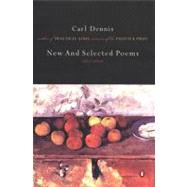Since George Bush was elected in 2000, I have been engaged in debates with people who identify themselves as conservatives. In eight years, I have never "won" any of these debates, at least not to my satisfaction. Part of the reason for my failure is the lack of my political knowledge (even in the 2000 election, I cared more about partying than the political parties), and part can be chalked up to my lack of rhetorical skills (as an undergrad, my college buds would make fun of my errant speech, "What are you, an English major?," the joke being that the answer was "yes"). Despite my obvious deficiencies, I can't help but think that I was fighting a losing battle.
Recently, I have conducted research into what makes people conservative, with the hope that knowing more about what makes them tick will enable me to convince them of my convictions, and that winning over self-proclaimed conservatives is not a losing battle. The following list represents a useful survey into the literature of rhetorical knowledge that progressives and people on the left need to acquire in order to begin breaking out of the hegemonic stranglehold that conservatives hold on the political "conversation" taking place in the early 21st century United States.
- The Rockridge Institute, specifically their book Thinking Points, A Progressive's Handbook: Communicating Our American Values and Vision. In 2004, progressive political thinkers like George Lakoff responded to the wave of conservative rhetoricians that have been at work to secure conservative hegemony since the early 70s (4 billion dollars were spent in the last thirty-five years by conservative think tanks, according to Lakoff). Lakoff et al. responded specifically to the work of Frank Luntz and argued that the Democrats would have to reframe the terms of the political debate taking place in the U.S. if they wanted to win the White House.
- Stephen Duncombe's work, specifically his book Dream: Re-Imagining Progressive Politics in the Age of Fantasy begins with a similar presupposition to the now defunct Rockridge Institute: rationalism is a fallacy. Although progressives are correct to side with the Enlightenment's belief in arriving at truth via rational and critical thinking, conservatives are winning elections by taking sophistry to new commanding heights. Progressives do not have to sacrifice the truth and join the wave of "New Sophistry" in order to win, but they do need to understand the power of desire and fantasy in people's lives. Although they may have been bathed in the clear waters of Enlightenment thought provided by the institutions of higher education, this is such a painful process--"spiritually" and economically--that many opt out of a secular baptism. Education hurts (at least at first). Perhaps this is why conservatives report being happier than progressives. I'm not sure about studies of happiness, but I am sure that Duncombe's book is invigorating and will deliver some of those jolts of enjoyment that those who choose education eventually discover is the payoff of being disabused of their of illusions.
- Jonathan Haidt has recently wrote an article for Edge: The Third Culture titled, "What Makes People Vote Republican." Haidt's article also plugs into Lakoff's cognitive scientific work that sees moral values and systems at work beneath people's political views, positions, and ideologies. On the whole, I'm convinced by this social scientific turn to understanding politics via morality (for more, check out this blog). Yet, there may be some traps in "reducing" politics to morality (see Zizek's critique of Lakoff in this article). At the very least, the responses to Haidt's approach are a testament to a lively interdisciplinary debate taking place in the academy on the roots of ideology. Indeed, the ol' Marxist problem of ideology is back with a vengeance.
I have concluded that although there are several ways to explain the political divide between the Right and the Left, a simple but eloquent theory seems to capture many, if not all of them. I believe that conservatives are essentially premodern, while those on the Left (whatever we call them, radicals, progressives, liberals, etc.) are modern.
Although conservatives believe in refrigerators as much as leftists, their conception of political space is premodern. If political space is a circle, "conservative-corporatists" believe that this circle is whole. Its structural integrity is threatened by an external agent (in premodern times, a rival tribe or empire; in modern times, the criminal element, communists, terrorists, illegal immigrants, etc.). "Revolutionary-antagonists" believe that this circle is divided from within, that it is structurally unstable because of an imbalance in the social order's distribution of wealth and power. The threatening agent is thus internal (this is an essentially modern vision because it recognizes that the antagonism that divides us is the "class struggle," not one that pits the Montagues against the Capulets).




